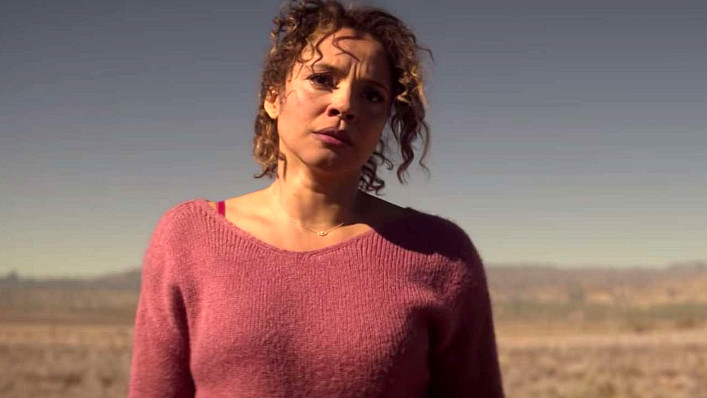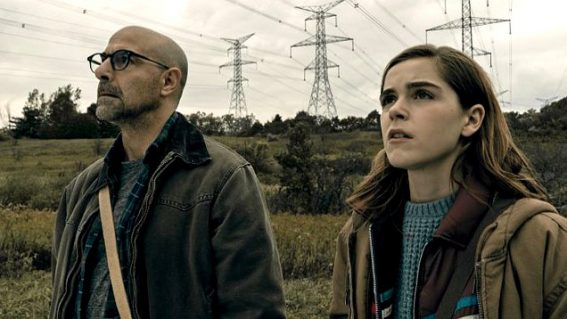Netflix’s supernatural thriller Rattlesnake is reminiscent of a thousand B movies

The new thriller from Australian director Zak Hilditch violates the spirit of silly movies spurred on by dumb decisions. But that’s the least of its problems.
Australian director Zak Hilditch’s Netflix thriller Rattlesnake poses the question: would you kill a stranger in order to save a loved one? And if the answer is yes: who would you decide to kill, if no Sky News presenters were in the immediate vicinity?
Hilditch’s script presents this as an ethically complex conundrum, brought upon by a deal-making demon who informs Katrina (a convincingly flustered Carmen Ejogo) that she has until sunset to commit murder, in order to save the life of her snake-bitten daughter. Katrina’s initial response however suggests she considers it a cinch: the protagonist simply heads to the hospital and finds the nearest terminally ill man.
Smart, but is that cheating? It certainly violates the spirit of silly movies spurred on by dumb decisions. The kind of solution storytellers have ignored since time immemorial, on the grounds that such despicably logical behaviour constitutes the very antithesis of interesting drama. There are complications, however; a surprise to no-one given the film runs longer than 30 minutes.
Rattlesnake is a ‘treading water’ thriller. Its ominous central conceit involves a ticking clock, but the plotline is stagnant, operating not with a constant drive for action but an assumption that something big will happen at some point. A range of delay tactics postpone the inevitable, when procrastination finally becomes definitive action.
Among the tactics Hilditch uses to attempt to sustain (the nevertheless waning) interest is the deployment of various ghosts. These wretched vagabonds wander into scenes unexpectedly, as if they were dinner party guests who ducked out of the Overlook Hotel for a smoke then got lost. They bang their heads against windows, set themselves on fire and generally act unpleasantly, reminiscent of similarly forgettable apparitions from a thousand lost-in-time B movies.
Rattlesnake’s pulse too often feels as dead as the ghosts – though there are hints here and there of something greater. Or at least of unrealised ambition. When Katrina enters Tulia, where most of the film is based, the director holds the frame to capture a sign boasting “the richest land and the finest people.” This is ironic. The land is desolate and parched, and its citizens resemble extras from a Stephen King knock-off.
Hilditch is signposting what he clearly intended to be the subtext, however, suggesting a commentary on humans as creatures that reflect and encompass properties of the space around them. This is similar terrain, so to speak, as his previous film: the excellent King adaptation 1922, which argued murderous inclinations can be byproducts of cursed land; the contaminated soul of the soil rising to the surface.
That dark trip of a film, with its anti-capitalist inclinations, Telltale Heart vibes and mud-like aesthetic, worked much better. As did Hilditch’s career-making triumph These Final Hours – an apocalyptic drama so intensely hot and humid slapping on some sunscreen prior to a viewing is recommended. For Rattlesnake, a light application of insect repellent will probably do. Or maybe just a tall glass of water consumed beforehand.

















